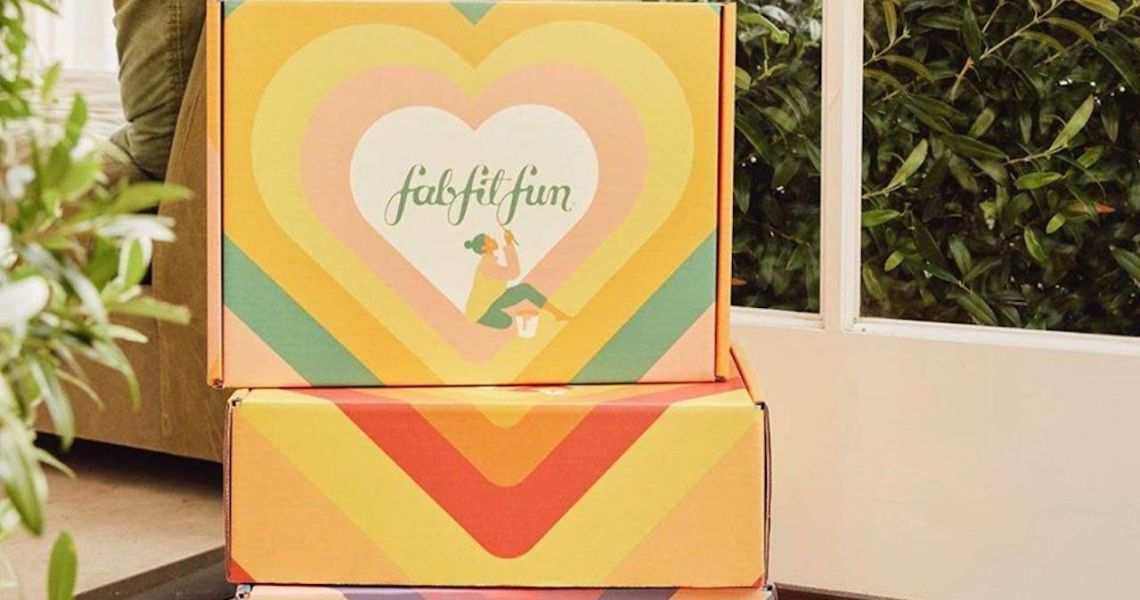FabFitFun is attempting to expand the number of BIPOC-, women- and LGBTQ-owned and operated brands it features in its monthly boxes and online shop by working with a merchandising platform called RangeMe.
Eight-year-old RangeMe works by allowing brands to upload their company information onto its platform, where buyers can then search and refine across multiple sub-categories like certified fair trade or country of origin. RangeMe works with retailers like Sephora, Ulta Beauty and Walmart. On FabFitFun’s website, a landing page in the supplier-inquiry section directs brands to set up a profile and share more information, including whether they’re BIPOC-, women- or LGBTQ-owned.
Katie Rosen Kitchens, FabFitFun co-founder, said FabFitFun has diversified its customer base and needs to offer more brands reflective of this new audience. Its core customer base is 25- to 45-years-old, though Rosen Kitchens did not specify other demographic groups. FabFitFun now has 1.5 million subscribers, representing 50% growth compared to 2019. It earned more than $300 million in 2020 revenue, according to previous Glossy reporting, but Rosen Kitchens declined to share further figures or comment on a potential IPO in 2021.
“RangeMe helps our buyers quickly assess new products and find new brands more easily,” said Rosen Kitchens. “We are across all different categories like beauty, fashion, fitness, wellness, home and tech. It was a challenge for the merchandising team to not just focus on big well-known brands, but to find a smaller, niche, and more diverse brands and products.”
Rosen Kitchens said that while big well-known brands have the brand awareness, clout and budget to get in front of buyers and leverage public relations, smaller brands are at a disadvantage. FabFitFun currently carries minority-owned brands like Uoma Beauty, hair device brand Kim Kimble, and Wei skin care. In the past, Rosen Kitchens said not all businesses may have considered sharing background information about their ownership or operations when pitching to FabFitFun; RangeMe allows brands to quickly self-identify in niche groups such as veteran-owned. It does not cost brands anything to join and use RangeMe, though brands can pay to access premium features. Unlike a wholesale retailer, brands often sell their products at or below manufacturing cost to FabFitFun, while larger brands like Crest and Vaseline have paid to include their products.
FabFitFun has not shared the percentage of BIPOC-owned brands it works with, and Rosen Kitchens said FabFitFun does not track percentages. Instead, she said FabFitFun spent $29 million in 2020 on minority-owned businesses and over $100 million on women-owned businesses. She added that FabFitFun does not have a quota or specific goal for increasing investments in those categories.
“Discovery is anywhere from 20-40% of a buyer’s job,” said Brandon Leong, RangeMe svp of marketing and growth. “There’s the proactive discovery of finding brands, but then there’s managing inbound inquiries, and buyers are bombarded.”
Ad position: web_incontent_pos1
Leong said that RangeMe saw a significant shift in 2020 among buyers toward searching for diverse-owned brands. Other trends include searches for sustainability-focused brands and CBD products.
In addition to focusing more on diversifying its brands, FabFitFun recently shared its version of a banned ingredient list in January. According to Variety, its other recent business developments include layoffs of 100 people in Feb. 2020 and the shuttering of its “FabFitFun Live” show on Facebook. It also concluded programming with its former partner QVC in Dec. 2020, though Rosen Kitchens said the two companies will likely work together again in the future. FabFitFun still maintains robust social and digital programming with ongoing social promotions on its own channels, videos, online articles and a printed magazine, as well as celebrity and influencer gifting.
“FabFitFun is a marketing opportunity for these brands,” said Rosen Kitchens. “When you think about the work we put into it beyond the product order, we create a billion-plus impressions [for brands]. Our commitment is about figuring out how we can do that for more women-owned brands and LGBTQ- and BIPOC-owned brands.”




